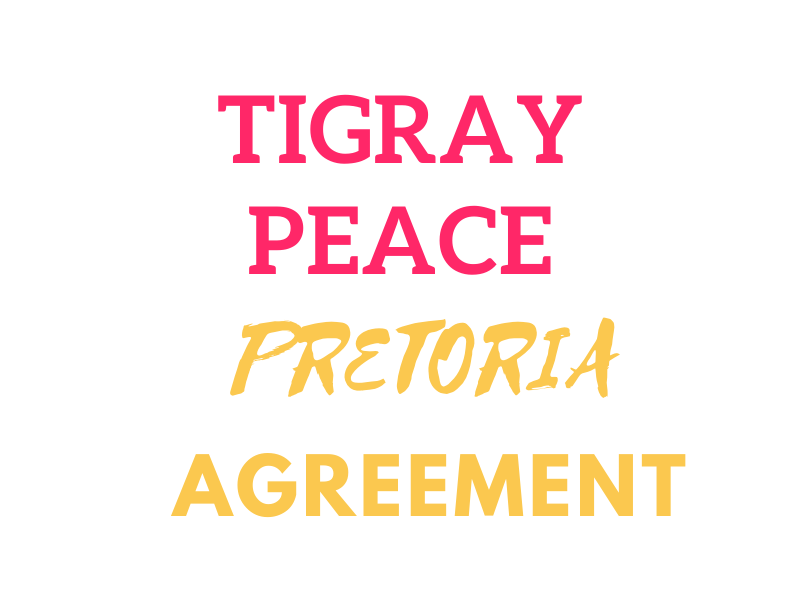By Aesop
11/08/2022
The TPLF delegates have finally, albeit brief, dropped an echo to their great silence pertaining the Pretoria agreement. Getachew Reda’s twit went like: “Peace is what our people need more than anything”. The “TPLF delegate” also twitted: “Whether we will deliver on our promise in a manner that satisfied our people, time will tell”. Further, the delegate stated: “our survival as a people is at stake. If a peace agreement can ensure our survival, why not give it a try?!”. Its therefore, albeit unfortunately, necessary to dissect this ‘twit’ and echo the great silence reigning among the “TPLF delegates”.
Before plunging in, however, it is important to put forth a disclaimer. The notion that “TPLF delegates” are “prophets” is blasphemous. They are all men (and few women) liable to make mistakes, Ecce Homo per Nietzsche. Also, the notion that Tegaru should stay put until these “prophets” bring down “The Commandments” triggers a dangerous question: If God gave “Moses” the “Ten Commandments”, who gave the “TPLF’s delegates” this “deal”? Superpowers? Since Tigrai is stuck in a political quagmire, we might as well stay in the secular lane, separating religion from politics. Now, right back to the twit.
The first excerpt from the twit goes like: “our people need peace more than anything”. Again, important questions that matter arise here: 1) what kind of peace? Galtung, a prominent conflict scholar, divides peace into positive and negative peace. Positive peace is one where parties stop fighting to genuinely reconcile while negative peace is one where parties stop fighting while holding grudges, bidding their time to harm each other. Does this “deal” deliver a positive peace? 2) Does peace trump liberty, equality, and fraternity? Is a peace deal signed under dishonorable conditions worthwhile or sustainable? Again, “TPLF delegates” are left with questions to answer.
Second excerpt from the twit states: “whether we will deliver on our promise in a manner that satisfied our people, time will tell” This phrase also sparks more questions: 1) What was the promise made for Tegaru? Was it not Eritrea out of Tigrai? Was it not restoration of Tigrai’s territorial integrity? Was it not securing Tigrai’s right to self-determination-manifested through self-determination? If so, why aren’t these issues absent in the deal? 2) Is there any other path/manner that will satisfy “our people”? How else does the “TPLF delegate” expect to “deliver” on “its promises”? “TPLF delegates” are left with questions to answer.
Third excerpt: “our survival is at stake. If a peace agreement can ensure our survival, why not give it a try?” This phrase also invites some questions: 1) Is this deal the sole option left for Tigrai to ensure her survival? 2) Has the Tigreans resistance been pressured by its enemies to capitulate? 3) Will giving this deal a “try” guarantee Tigrai’s surivial? If so, how? For the third time, Tigreans will raise these important questions only the honest can answer.
Now, Tigreans remember the terms “TPLF delegates” outlined to them on various occasions before they flew to Pretoria. They said some agendas like TDF’s disarmament, Eritrea’s evacuation, and restoration of Western Tigrai were non-negotiable. Yet, this “deal” does not appear to have addressed these serious concerns having significant ramifications on Tigrai’s “survival”. In fact, some of the phrases in this “deal” do endanger Tigrai’s survival. For example, what does the “deal” of disarming, demobilizing, and reintegrating “TPLF combatants” within one month mean? Also, what does acknowledging the Ethiopian Defense Forces as the sovereign law enforcement entity mean? Moreover, what is the implication of supplanting the Tigrean Regional Government, elected by 2.74 Tegaru, with a “transitional government”? Apparently, “TPLF delegates” face more questions than answers that Tegaru historians will raise in perpetuity.
Tigreans will raise all of the above questions (and more) in different forms, in different avenues, and in different times. Now, will these questions impact those ignoring these valid questions? Well, to borrow from the ‘twit’, “time will tell!!” Will it slow down those jumping fence to speak on behalf of the delegates authorized to provide answers? Also “time will tell!!” Only thing that is certain in politics, however, is this: the more one shirks these questions, the more one’s credibility suffers. Political power, after all, is more of a psychological influence than a numerical or organizational advantage. Real power hails securing the wherewithal to influence people. The most effective means to influence others is through reason, not emotion or religion. The remaining tactics like using force and other scare-tactics, invite resistance, especially in Tigrai. The good news is most Tegaru, including prominent scholarly organizations, have openly expressed their reservations against the Pretoria deal. It, therefore, behooves the “TPLF delegates” to address these concerns before “time tells” us the consequences.
A final word: ‘this is not a personal rebuttal against an otherwise amicable individual but an echo to the “great silence” from “TPLF delegates”.
